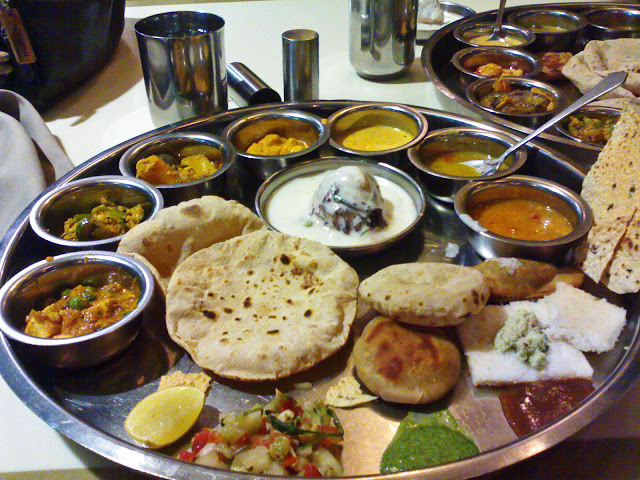The citizens of Bosnia and Herzegovina truly enjoy the tasty and healthy food and drink. Traditional food is often prepared with meat, and meals are plentiful and delicious. The meat is of extraordinary quality, often organic, and well prepared. Meat is the ingredient of some of the most popular Bosnian dishes such as bosanski lonac, ćevapi, begova čorba, burek, and grah.
In the report for 2011 the World Health Organization (WHO) stated that when it comes to food safety, the residents of Bosnia and Herzegovina are, in all six segments that were evaluated and scored, in and above the average when compared to other countries in the region.

Due to its geographical position and history, Bosnian cuisine is similar to the cuisines of Turkey, Greece, and other Mediterranean countries, but the influence of European cuisines, especially the Central European, is strongly felt. In all major cities there is a wide selection of restaurants that offer Italian, Mediterranean, international and traditional dishes. Variety of spices is used in Bosnian cuisine, although in small quantities. Sauces are almost entirely natural.
Typical ingredients of Bosnian dishes are tomatoes, potatoes, onions, garlic, peppers, cucumbers, carrots, cabbage, mushrooms, spinach, squash and beans. Paprika, pepper, parsley, bay leaf and celery are regularly used in Bosnian cuisine. Milk, cream and sour cream are often used in and with traditional Bosnian dishes.
Herzegovina region is suitable for growing grapes and wine production, while in Bosnia the home made brandy is made from plums.
In Sarajevo and all other towns you will easily find pita and ćevapi. If you are in Herzegovina and especially if you visit Blagaj near Mostar, do not miss trout which is grown on the local farms and is sort of a local specialty.
Fast-food, except ćevapi and pita, includes other quickly prepared meals common in other parts of Europe as well: pizza, hamburger, hot-dog, kebab etc. Various types of sandwiches and pastries can be found in bakeries which are located throughout the cities and offer fresh salty and sweet rolls.
janjetina
Along the roads you will often see restaurants offering lamb on the spit. That is a specialty and a treat for meat lovers. It is sold per kilo and usually is served with roasted potatoes and season salad.
No matter what you order in Bosnia and Herzegovina you will be served bread in almost all cases which is traditionally consumed in large quantities in Bosnia. Soup and salad are also common dishes that make up a complete meal in Bosnia.
The most popular soup in Bosnia and Herzegovina is Begova čorba – Bey’s soup. Tarhana soup is also homemade dish of Turkish origin that is still cooked across the country. “Tarhana çorbasi” is the original name of this dish. It is sour dehydrated homemade dough that is cooked in the tomato soup.
Salads are usually seasonal. In restaurants you can also order so called winter salads like ajvar, pinđur, as well as pickled vegetables.
baklavaSweet dishes in Bosnia and Herzegovina also entice gastronomic sighs, especially of the visitors from abroad. Desserts are tasty and good, because most are made with local products. Traditional sweets from Bosnia and Herzegovina are baklava, kadaif, ružice and tufahije.
As for drinks, black coffee is inevitable in Bosnia and Herzegovina, as well as the very ritual of drinking and enjoying coffee with friends and acquaintances. In homes across the country Bosnian or Turkish coffee is cooked and served. Bosnian black coffee can be found in some of the many cafes in Sarajevo and other cities and it is often served with rahat lokum, another oriental delicacy, or a small cube of sugar. In cafes the usual espresso coffee is served which can be ordered with milk, or cream, and during the recent years the offer is enriched with all kinds of instant coffee beverages such as Ness café etc.
Regarding the alcoholic beverages, beer, wine and different homemade spirits are quite popular in Bosnia and Herzegovina. The local beer offer is quite extensive – Sarajevo beer, Pilsner Tuzla, Preminger Bihać, Nektar Banja Luka etc. Imported beers are also available in stores and restaurants and cafes. Herzegovina traditionally produces good wine. Red and white dry wine from Herzegovina is of the surprising quality and you must try the wine from the Cellar Čitluk and HEPOK wine. Small wineries along the Wine Route of Herzegovina are gastronomic gems where you will truly enjoy the local wine, ham and figs.
Most common and most popular homemade spirit is the plum brandy, but brandies from other local fruits are also common: pear, grape, cherry, walnut, apricot, apple, and various medical herbs, etc. Homemade spirits are of the excellent quality often with 40% of alcohol or above.
voda esperanza
Tešanjska mineralna voda Esperanza je na 22. međunarodnom sajmu voda u Berkeley Springsu u SAD-u, već drugi put proglašena najboljom vodom na svijetu za 2012.g.
Water in Bosnia and Herzegovina is of exceptional quality. Almost all cities in Bosnia and Herzegovina have at least one public fountain, which is often located in front or near the mosque. You will also often find the fountains along the roads that were used by passengers in the past. In mountains you will find streams and springs – common source of drinking water. In Bosnia and Herzegovina water does not pose a problem and there is no need to buy water in bottles because the tap water is of outstanding quality. Bottled water in Bosnia and Herzegovina is of very good quality as evidenced by numerous regional and international awards for quality.



